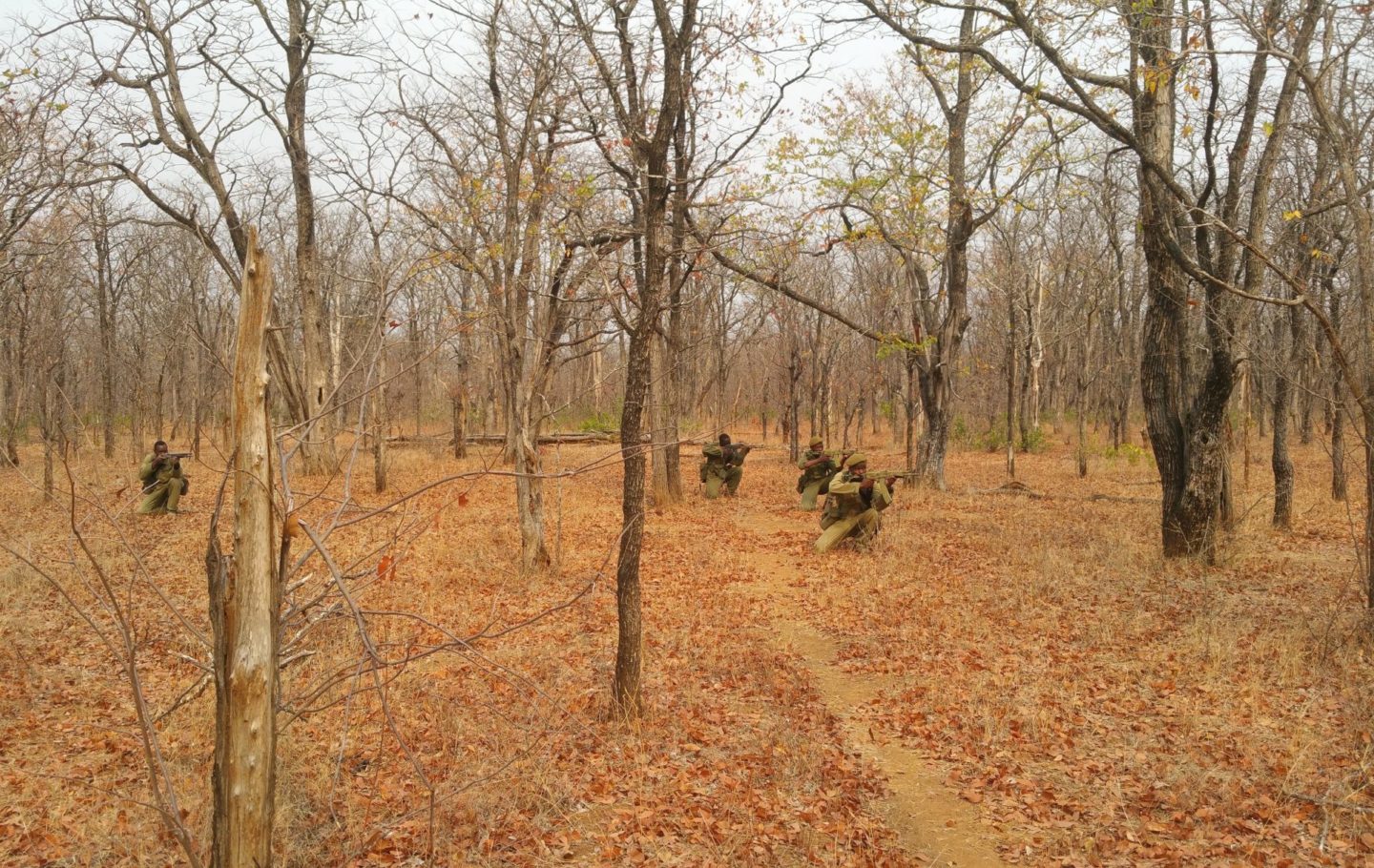
Tusk believes there is now real hope the war against poachers can be won, thanks to a £900,000 commmitment in two grants for its anti-poaching work in Africa from the UK Government through the IWT Challenge Fund. The announcement was made today in The Hague by UK Environment Minister Rory Stewart, while attending an international conference on wildlife crime. The grants come as part of a £13 million UK Government investment to combat the illegal wildlife trade, an initiative launched in 2014.
One of the key beneficiaries is an invaluable training programme for rangers and information officers from 16 different protected areas across 12 African countries. Half of these protected areas are managed by African Parks, who are Tusk’s main project partner in this vitally important initiative.
More than 100 rangers will be given specialist training in how to directly track and intercept poachers before they reach their target. Information officers from all the protected areas will meanwhile receive expert training in information gathering and analysis, and a network for sharing information between the protected areas will be established.
The project’s goal is to significantly reduce the level of wildlife lost to poaching, by both interrupting and arresting poachers on the ground, while also disrupting the trading networks that they supply. In so doing it will also improve security in and around the protected areas. It will build on a 2014 fact-finding mission and a successful trial project conducted last year, both of which were funded by The Prince of Wales’s Charitable Foundation. Tusk is extremely grateful to The Prince and his Foundation for their incredible support in developing this initiative.
The second IWT Challenge Fund grant is focussed on Uganda and overcoming its role as a major transit hub for illegal wildlife trade, as well as some of the wildlife poaching happening within. The work will be carried out by Tusk’s long-term partner organisation, the Uganda Conservation Foundation, with further support in key areas from the International Institute for Environment and Development, Soft Power Education, the Uganda Wildlife Authority and the Natural Resource Conservation Network.
This project will identify and reduce the factors that push people into wildlife crime from the poor rural communities around Murchison Falls National Park and Queen Elizabeth National Park. The measures to reduce poaching and criminal activity in these areas will include the development of sustainable livelihood options and preventing conflict between people and wildlife through a variety of measures to protect crops and improve relations between the rural communities and those protecting the park.
The project will also help develop the capacity of the intelligence and legal sectors of Ugandan law enforcement to increase arrests and convictions, particularly of those higher up the chain within the illegal wildlife trade.
In addition to Tusk’s other ongoing efforts to prevent poaching, the two initiatives will make a considerable difference at a critical time for wildlife populations across Africa, and we are extremely grateful to have UK Government’s significant support towards these initiatives.
